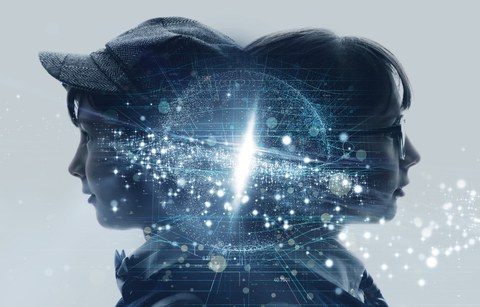Oct 08, 2019
Time Machine Conference 2019 Dresden – Researchers develop roadmap for big data project on European cultural heritage
Tourists in Dresden can see how the city looked before its destruction on their smartphone. Restorers can receive all the architectural documents relating to Notre Dame Cathedral in the form of a 3D information model, and produce replicas from them with the aid of robots. Researchers can view all the relevant historical documents on the history of ancient navigation at a glance in digital form, without having to spend months trawling through the stock of libraries and archives. These are the kind of digital time trips that the European Time Machine Project is aiming to make possible.
On 10–11 October, the TU Dresden is inviting participants to the Time Machine Conference at the German Hygiene Museum in Dresden. 350 international guests from the fields of science, technology and culture will discuss the potential of digitalising cultural heritage for education, the creative and media industries, entertainment, urban planning and policy making.
The Time Machine is aiming to collect and utilise the big data of the past, and plans to develop and implement pioneering new digitalisation technologies using artificial intelligence (AI). It thereby intends to unlock Europe’s vast cultural heritage and enable faire and free access to information.
The Time Machine Project is a unique alliance between leading European university and research institutions, cultural institutions and businesses, and today it already involves over 500 partners. These partners are aware of the huge potential of digitalisation and the highly promising new paths for science, technology and innovation that are opened up by the data treasures of the past.
It was only in March 2019 that the European Commission chose the Time Machine as one of six research initiatives to be developed strategically, in order to prepare detailed roadmaps for the next decade. At the Dresden conference, scientists will discuss the roadmaps with representatives of industry and institutions and jointly develop them.
“Time Machine is likely to become one of the most advanced artificial intelligence systems ever built, trained on data from wider geographical and temporal horizons,” explains Frédéric Kaplan, Professor of Digital Humanities at the Ecole Polytechnique Fédérale de Lausanne (EPFL) and coordinator of the Time Machine Project.
At the TU Dresden, Junior Professor Sander Münster is coordinating the development of the ‘Innovation and Outreach’ roadmap. The ‘Dresden Time Machine’ initiative sees itself as a virtual group concerned with using digital technologies to collect, digitalise, unlock, co-design, explore and present Dresden’s history and cultural heritage. It unites numerous Dresden companies plus research and commemorative institutions, and is a key project in the City of Dresden’s bid to become European City of Culture 2025.
For further information and conference registration details, visit: https://conference.timemachine.eu
The following will be available for interviews during the conference:
• Prof. Frédéric Kaplan, Digital Humanities Chair at Ecole Polytechnique Fédérale de Lausanne (EPFL) and Director of EPFL Digital Humanities Laboratory (DHLAB)
• Prof. Sander Münster, Technical University Dresden/Friedrich Schiller University Jena
Media inquiries:
Prof. Sander Münster
Tel.: +49 351 463-32530

